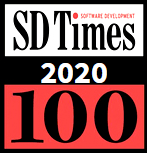OpenMake Blog
Topics include Build Acceleration, CD Integration, News, and Tricks.
OpenMake Software Receives SD Times 100 Award
OpenMake Software Receives SD Times 100 Award OMS recognized by SD Times in the DevOps Leadership category for the fourth consecutive year.

Santa Fe–June 22, 2020– OpenMake Software announced today that they received the SD Times 100 Award for DevOps Leadership for the 4th year in a row. OpenMake Software, the creators of OpenMake Meister for build and release management, democratized continuous deployments with their contribution and support of the Oretlius Open Source Project. The award recognizes leaders and innovators of the software development industry for 2020.
SD Times explains, “When choosing the SD Times 100, we carefully considered each company’s offerings and reputation. We also listened for the “buzz”—how much attention and conversation we’ve heard around the company and its products and technologies—as a sign of leadership within the industry.” Congratulations to all who won awards this year, the full list is available online.
Receiving the award for the forth consecutive year is an important achievement for OpenMake Software as their stated goals is to be ‘disrupters’ in the Application Release Automation space. OpenMake Software, together with DeployHub, will release the latest open source Ortelius 9.0 Version in early July.
“We make configuring software builds and deployments easy,” says Steve Taylor, Chief IT Architect of OpenMake Software. “Access to automated build and deploy tooling is a barrier for development teams due in large part to the cost. We are democratizing continuous deployments for all. And the Ortelius Microservice Management open source project is leveraging our core configuration expertise designed for microservices. "
SD Times launched in February 2000 by BZ Media, and is the newspaper of record for the software development industry. SD Times is published twice monthly in print and at www.sdtimes.com.
DeployHub is a central hub of microservice configuration metadata. It tracks and versions the ‘death star’ thus simplifying the migration to – and ongoing management of – a microservice architecture. They understand the importance of supporting today’s cloud and physical data centers, but maintain a strong focus on the critical need for a microservices and Kubernetes platform.